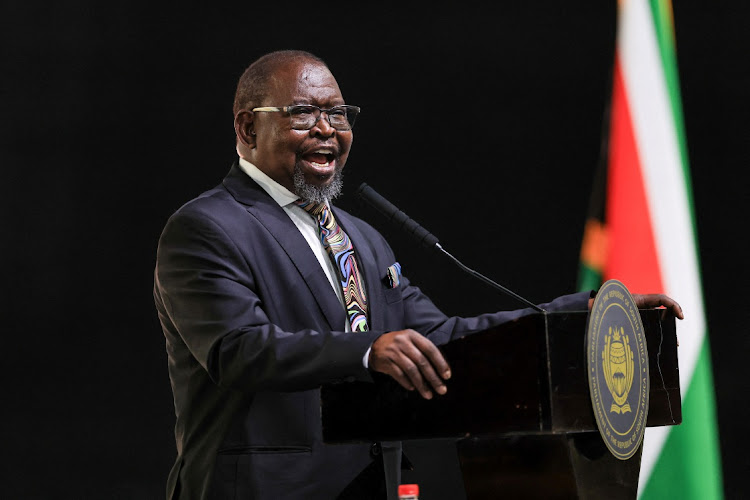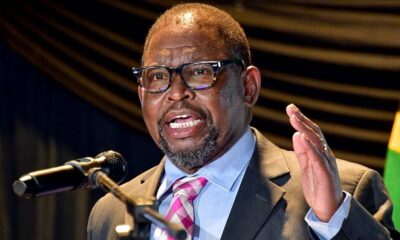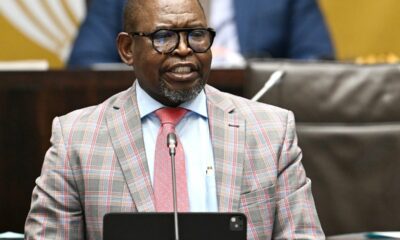Business
Tough Choices Ahead: Experts Warn Godongwana’s Budget Must Cut Spending, Not Confidence

As Finance Minister Enoch Godongwana prepares to deliver his third national budget speech on Wednesday, economists and analysts are warning that the stakes have never been higher for South Africa’s economy.
Faced with a ballooning budget deficit, mounting debt, and a decision to keep VAT at 15%, Godongwana must now find alternative ways to plug an estimated R13.5 billion revenue shortfall for the current fiscal year — and as much as R75 billion over three years.
“This will have to be made up for. Treasury will have to revise their GDP growth forecast downwards,” said Johann Els, Chief Economist at Old Mutual. “They have it at 1.9% for 2025, but most forecasts sit closer to 1.5%.”
The scrapped VAT hike may bring relief to consumers, but economists agree it puts pressure on government to keep its promises on debt and deficit control without relying on increased borrowing.
Stick to the Targets — Or Risk Credibility
Els stressed that maintaining fiscal discipline is essential to sustaining investor confidence.
“It’s crucial government sticks to its deficit target of 4.6% this year, declining to 3.5% over the next few years. The debt-to-GDP ratio must peak at 76.2% this year as planned,” he added.
North-West University Business School economist Professor Raymond Parsons echoed this sentiment, saying the budget presents an opportunity to restore credibility.
“This budget can be successful if it focuses on fiscal stability and aligns with the Government of National Unity’s goal of achieving 3% job-rich GDP growth,” Parsons said.
Consumer Relief, But at What Cost?
Neil Roets, CEO of Debt Rescue, welcomed the decision to hold VAT steady but warned of hidden tax burdens.
“We’re concerned about potential fuel levy hikes and stealth measures like bracket creep or frozen medical aid credits. These quietly shift the burden onto households,” Roets said.
Cutting Spending, Not Growth
Benay Sager, Executive Head of DebtBusters, said Treasury may need to reduce departmental budgets, keeping tax brackets unchanged and using inflation to boost revenue passively.
“There’s just not enough money to go around. We may see targeted taxes, possibly on crypto and digital assets, while spending cuts help fill the gap,” said Sager.
Trimming the Fat, Saving the Core
Casey Sprake, economist at Anchor Capital, believes that while some public service allocations may be scaled back, infrastructure spending will likely be protected.
“Infrastructure is vital for long-term growth, and Treasury will likely preserve it as part of its fiscal strategy,” Sprake said.
The consensus is clear: Godongwana’s third budget must balance between fiscal prudence and economic stimulation. With international rating agencies watching closely and domestic households under pressure, the Finance Minister has little room for error.
{Source: IOL}
Follow Joburg ETC on Facebook, Twitter , TikTok and Instagram
For more News in Johannesburg, visit joburgetc.com



























